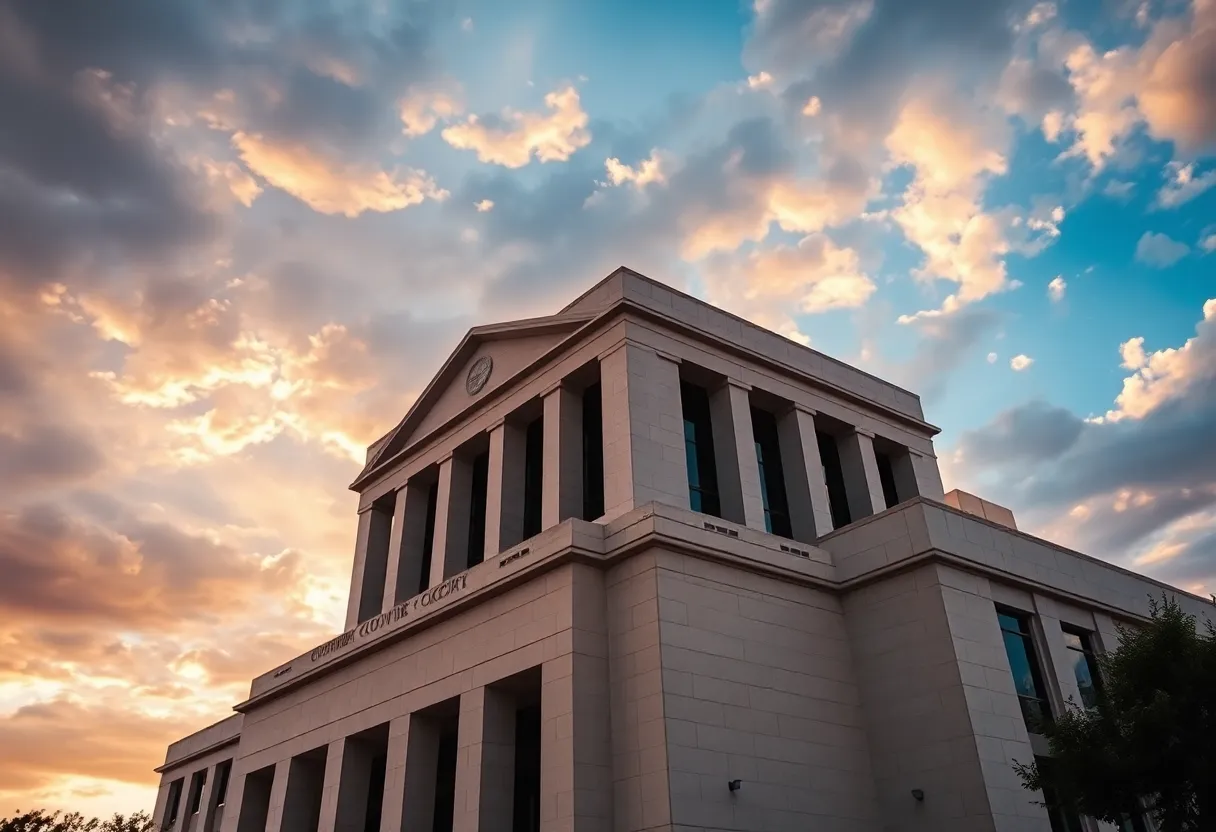News Summary
The Texas Business Court recently ruled on the significant case of Kassam v. Dosani, addressing serious allegations including breach of fiduciary duty and mismanagement among interrelated businesses. The court denied defendants’ plea to sever the case, emphasizing a unified approach to corporate governance. This ruling sets a crucial precedent for future cases, indicating that the court will maintain jurisdiction over related disputes, enhancing legal protection for significant business interests in Texas.
Texas – The Texas Business Court’s Eleventh Division recently delivered a significant ruling in the ongoing corporate dispute known as Kassam v. Dosani, affirming its authority over intertwined business matters. The court rejected the defendants’ attempt to split the case into three separate lawsuits, thereby confirming its jurisdiction in high-stakes commercial disputes involving multiple entities.
The plaintiffs, Shabbar and Zain Kassam, brought their claims against the defendants, alleging improper seizure of control over three related, historically profitable businesses: ZZLS, LLC, MSW23, LLC, and Valley Trading Company, LLC. In total, the plaintiffs filed six claims that included accusations of breach of fiduciary duty, mismanagement, usurpation of operational control, improper withholding of distributions, denial of access to company records, and removal or transfer of valuable inventory.
The defendants contended that the plaintiffs’ grievances should be viewed in isolation, claiming they were not members of the same companies and that the various claims were related to distinct acts and entities. They also contested the Texas Business Court’s jurisdiction, claiming that none of the individual claims met the required $5 million threshold for amount in controversy.
However, Judge Bullard of the Texas Business Court countered the defendants’ assertions, indicating that the plaintiffs’ claims were part of a unified scheme rather than separate issues. The court highlighted that at the pleading stage—when plaintiffs are filing initial claims—they are not obligated to prove exact damages, particularly when it comes to matters of business governance.
The Texas Business Court recognized the necessity for the plaintiffs to recover damages and safeguard significant rights associated with the nominal defendants, which are intricately linked to the overall value of the businesses in question. Notably, ZZLS, one of the impacted companies, reported annual revenues ranging from $42-43 million, emphasizing the high stakes involved.
The ruling also shed light on procedural issues, with the court aiming to inhibit tactics that might allow defendants to evade jurisdiction based on technicalities. The court underscored that splitting claims simply due to different plaintiffs owning different companies does not align with a fair judicial approach when crucial business control issues are at stake.
This decision is poised to influence lower courts in Texas, encouraging broader interpretations of jurisdiction, particularly in complex corporate governance cases. The Texas Business Court is signalling that cases involving significant business issues ought not to be fragmented for procedural convenience.
As the case progresses, the implications of the Kassam v. Dosani ruling could resonate throughout Texas’s corporate legal landscape, shaping how future disputes involving interconnected businesses are handled. The emphasis on unified claims in significant business contexts may serve as a precedent, enabling better protection for the rights of stakeholders involved in intricate corporate operations.
Deeper Dive: News & Info About This Topic
- JW: Texas Business Court Denies Severance Claims
- Norton Rose Fulbright: Texas Business Court Exercises Jurisdiction
- Vinson & Elkins: Texas Business Courts Quarterly Update
- Wikipedia: Texas Business Court
- Google Search: Texas Business Court
Author: STAFF HERE GEORGETOWN
The GEORGETOWN STAFF WRITER represents the experienced team at HEREgeorgetown.com, your go-to source for actionable local news and information in Georgetown, Williamson County, and beyond. Specializing in "news you can use," we cover essential topics like product reviews for personal and business needs, local business directories, politics, real estate trends, neighborhood insights, and state news affecting the area—with deep expertise drawn from years of dedicated reporting and strong community input, including local press releases and business updates. We deliver top reporting on high-value events such as the Red Poppy Festival, Georgetown Swirl, and Christmas Stroll. Our coverage extends to key organizations like the Georgetown Chamber of Commerce and the Downtown Georgetown Association, plus leading businesses in manufacturing and tourism that power the local economy such as local wineries and historic downtown shops. As part of the broader HERE network, including HEREaustin.com, HEREcollegestation.com, HEREdallas.com, HEREhouston.com, HEREgeorgetown.com, and HEREsanantonio.com, we provide comprehensive, credible insights into Texas's dynamic landscape.






